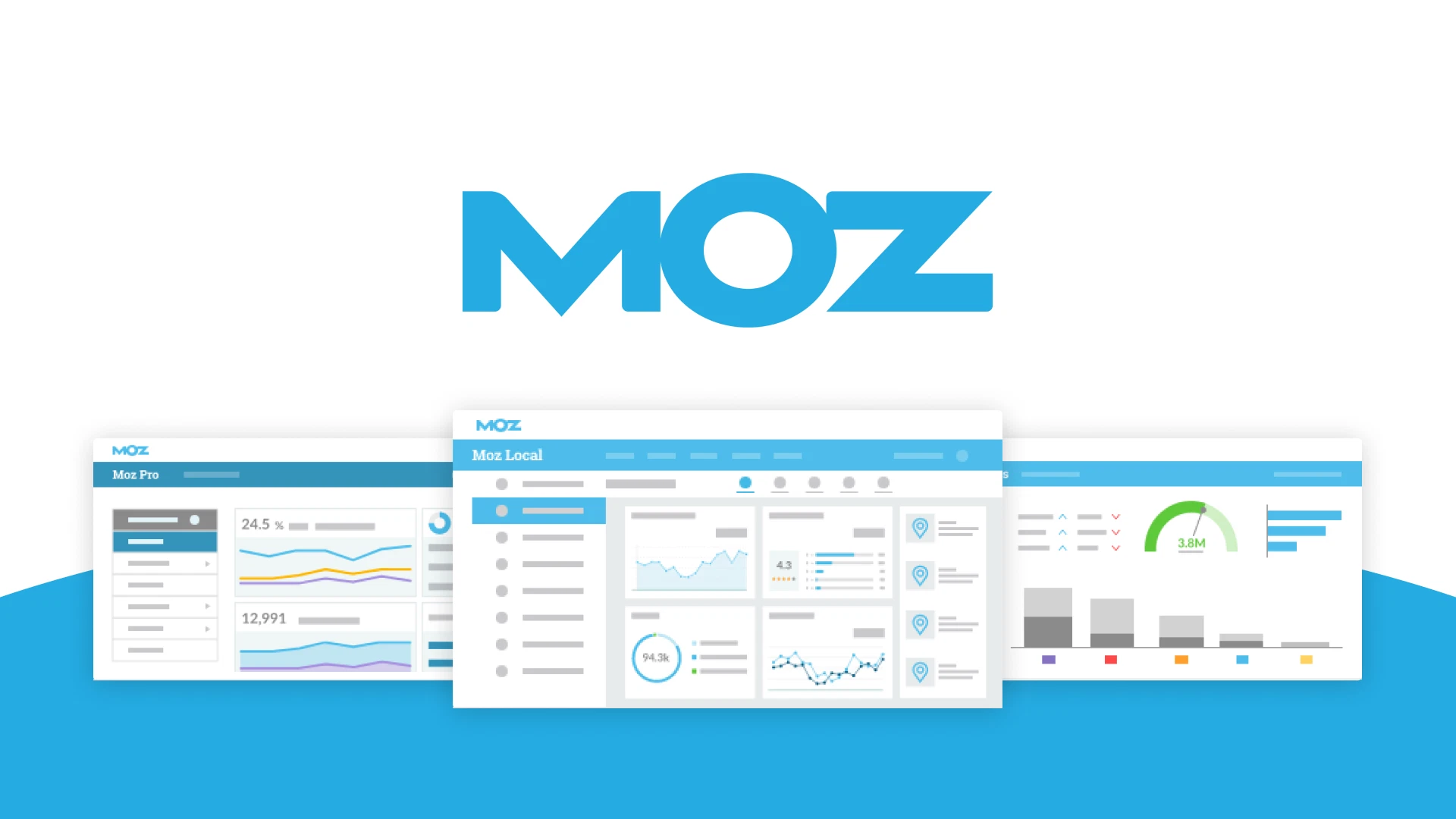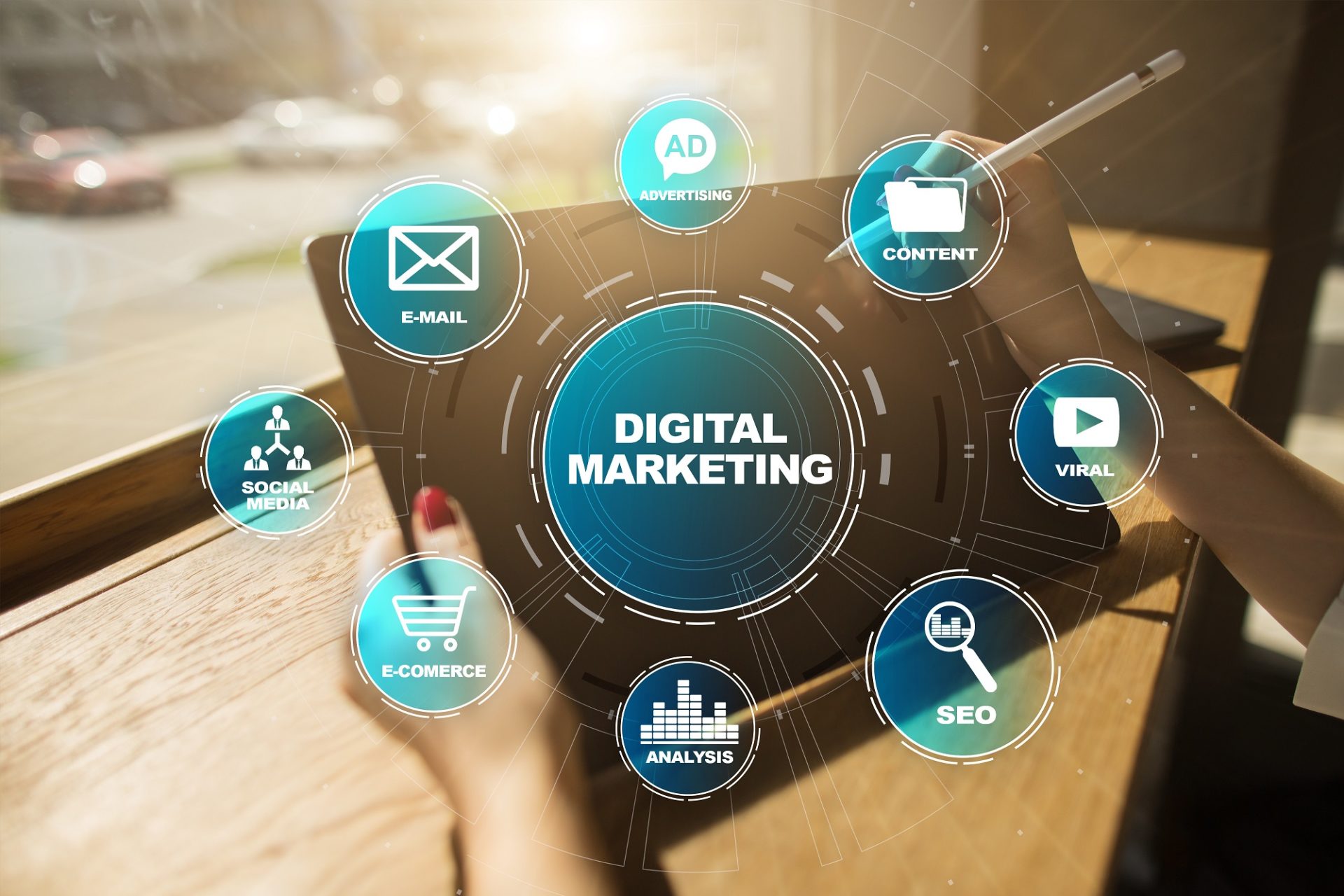What is SEO marketing consists on a digital strategy aimed at improving a website’s visibility in organic non-paid search engine results. Field of SEO Specialist, search engine optimization marketing is about understanding how search engines work and optimizing digital content in such a way that it ranks higher when users search for specific keywords or topics related to that content. This form of marketing is essential in today’s online-centric world, where the majority of consumers begin their information-gathering or purchasing process with a search engine, most commonly Google.
Table of Contents
ToggleWhat is SEO Marketing ?
What is SEO marketing blends creativity with technicality. It encompasses a broad spectrum of strategies and tactics, all designed to enhance the discoverability of a website. These range from keyword research and content creation to link building, site speed optimization, user experience enhancements, and mobile compatibility. While the end goal is to increase website traffic, the ultimate objective for businesses is to drive more conversions, whether that’s in the form of purchases, sign-ups, inquiries, or any other valuable user action.
To fully appreciate the power and scope of what is SEO marketing, it is important to break down its components, understand how search engines operate, and explore the various techniques that marketers employ to achieve high rankings.
At the most fundamental level of what is SEO marketing, search engines like Google, Bing, and Yahoo work by crawling the web, indexing pages, and then ranking them according to relevance and authority. Crawling refers to the process by which search engines send out spiders, also known as crawlers, to discover new and updated content on the web, which can be a webpage, an image, a video, a PDF file, or any other digital asset that can be linked to and indexed.
Once discovered, the content is added to the search engine’s index, a massive database of all the web pages they have found. When a user enters a query into the search engine, complex algorithms determine which pages in the index are most relevant and authoritative for that query. The results are then ranked and presented to the user, usually in order of relevance and quality, with the top results being the ones deemed most useful.
What is SEO marketing is all about influencing this process in a positive way. Marketers and webmasters strive to make their content not only discoverable and indexable but also appealing to the ranking algorithms. Achieving this involves a mix of on-page, off-page, and technical SEO.
What is SEO marketing for the on-page category refers to the optimization techniques that are applied directly within a website’s content and structure. This includes optimizing title tags, meta descriptions, headers, URL structures, and internal linking. Content quality plays a pivotal role here. Search engines favor content that is original, well-written, comprehensive, and relevant to the user’s search intent. Keyword research is foundational to on-page SEO. By identifying the phrases and questions that potential visitors are typing into search engines, marketers can tailor their content to match those queries more effectively.
Off-page SEO, on the other hand, involves factors that occur outside of your own website but still affect your ranking. Chief among what is SEO marketing, in this specific category, is link building, which means the process of acquiring hyperlinks from other websites back to your own. In the eyes of search engines, each backlink acts as a vote of confidence or credibility. If many reputable sites link to a particular page, it is assumed to contain valuable content, and it is more likely to rank higher. Other off-page factors include social signals, brand mentions, and the overall authority of your domain.
Technical SEO ensures that a website meets the technical requirements of modern search engines with the goal of improved organic rankings. This includes ensuring the site is mobile-friendly, has a secure connection (HTTPS), loads quickly, and is free from duplicate content and crawling errors. A technically optimized site helps search engines access, crawl, interpret, and index a site without any problems.
Another critical aspect of what is SEO marketing is user experience (UX). Google, in particular, places increasing emphasis on how users interact with websites. Metrics such as click-through rate (CTR), bounce rate, dwell time, and page loading speed are considered signals of user satisfaction. A well-optimized site must not only be technically sound but also easy and enjoyable to use. Clean design, intuitive navigation, and relevant content are essential for keeping visitors engaged.
What is SEO marketing is not a one-time effort but an ongoing process. The digital landscape is constantly evolving. Search engine algorithms are regularly updated to improve the relevance and quality of their results. Google, for instance, makes thousands of changes to its algorithm every year, some of which can significantly impact search rankings. This requires SEO marketers to stay informed about industry changes and continuously adapt their strategies.
The local optimization is a growing branch of what is SEO marketing, especially important for small businesses targeting a specific geographical area. Local SEO involves optimizing a website to appear in local search results. Techniques include creating and optimizing a Google Business Profile, encouraging customer reviews, and ensuring the business’s name, address, and phone number are consistent across all online platforms.
Search engine optimization also intersects with content marketing. While SEO focuses on the visibility, content marketing focuses on the creation and distribution of that content. High-quality, informative, and engaging content is the backbone of both strategies. Blogging, video creation, infographics, white papers, and eBooks are all common content types that serve both SEO and broader marketing goals. The more value a piece of content provides to users, the more likely it is to earn links, shares, and higher rankings.
What is SEO marketing In terms of analytics ? Search engine optimization is highly data-driven. Tools like Google Analytics, Search Console, SEMrush, Ahrefs, and Moz allow marketers to track keyword rankings, monitor website traffic, identify technical issues, analyze backlinks, and gain insights into user behavior. This data helps in measuring the effectiveness of SEO strategies and making informed decisions.
One of the greatest advantages of SEO marketing is its long-term value. Unlike paid advertising, where visibility ends the moment you stop funding a campaign, SEO has the potential to generate consistent traffic over time. A well-ranked page can attract visitors for months or even years with little additional cost, making it one of the most cost-effective marketing strategies.
However, SEO is also highly competitive. The top spots in search results are limited, and every business in a given niche is vying for them. This competition underscores the need for a comprehensive and well-executed strategy of what is SEO marketing, combining technical know-how, strategic content development, and ongoing performance analysis.
Ethical considerations also play a role in SEO marketing. Unethical practices such as keyword stuffing, cloaking, and buying links may provide short-term gains but are ultimately penalized by search engines. Modern SEO emphasizes ethical, sustainable techniques that provide genuine value to users.
Smartphones and tablets are another crucial component of what is SEO marketing. With the majority of searches now conducted on mobile devices, Google has adopted these first for indexing, which means it predominantly uses the mobile version of a site for ranking and indexing. Ensuring that your website is responsive, fast-loading, and easy to navigate on mobile is no longer an option but a necessity.
Voice search is also shaping the future of SEO. With the rise of digital assistants like Siri, Alexa, and Google Assistant, more users are performing voice queries. These tend to be longer and more conversational than text-based searches. Optimizing for voice search involves focusing on natural language, answering specific questions, and using structured data to help search engines understand your content.
Structured data, or schema markup, is another aspect of what is SEO marketing, consisting on a code that helps search engines better understand the content on a web page. By tagging specific elements of a page, such as reviews, recipes, events, and products, structured data can lead to enhanced search results, known as rich snippets. These can increase visibility and click-through rates (CTR).
Another emerging trend in SEO marketing is the integration of artificial intelligence (AI) and machine learning (ML). Google’s algorithm now incorporates machine technologies, such as RankBrain, to interpret complex queries and deliver better results. AI tools are also being used by marketers to automate keyword research, optimize content, and gain deeper insights from data.
The international aspect is important in what is SEO marketing, especially for businesses operating in multiple countries or languages. This involves optimizing content for different regions and ensuring that search engines serve the correct version of a website to users based on their location or language. Linguistic tags, localized content, and region-specific domains are all part of international SEO strategy.
It is important to understand that SEO is not a guarantee of success. Even with the best optimization, rankings can fluctuate due to algorithm changes, increased competition, or other factors. That said, a solid SEO foundation enhances the effectiveness of all other marketing efforts. It increases visibility, builds trust, and supports brand authority.
From a business perspective, what is SEO marketing consists on aligning your digital presence with what your audience is searching for. It requires understanding customer intent, creating value-driven content, and ensuring that every technical aspect of your site supports visibility and usability.
SEO marketing is a multifaceted discipline that lies at the heart of digital marketing. It is as much an art as it is a science, requiring a balance of creativity, analysis, and technical expertise. As long as people continue to use search engines to find information, products, and services, SEO will remain an essential strategy for businesses of all sizes.
The landscape may evolve, with voice search, AI, and mobile technology reshaping how users search, but the fundamental goal of what is SEO marketing remains the same, which is connecting people with the information they need, at the exact moment they want it. SEO marketing empowers businesses to be discovered in that crucial moment, making it one of the most powerful tools in the modern marketer’s toolkit.
To succeed with SEO marketing, a strategic mindset is required. This means more than just implementing best practices or checking boxes on an optimization list. Businesses need to understand their audiences, anticipate their needs, and develop a holistic SEO plan that aligns with their broader marketing and business goals. Strategic SEO planning involves defining clear objectives, such as increasing organic traffic, improving conversion rates, growing brand awareness, or breaking into new markets.
What is SEO marketing begins with thorough keyword research. This foundational activity goes beyond simply identifying high-volume keywords, but involves understanding the language your target audience uses, their intent behind search queries, and the competitive landscape for each keyword. Tools like Google Keyword Planner, Ahrefs, and SEMrush help uncover valuable keyword opportunities, but interpreting the data correctly is critical. For instance, a keyword with lower search volume might still be highly valuable if it targets a specific niche with strong purchasing intent.
Once the right keywords are identified, content creation becomes the centerpiece of the strategy. Effective SEO content is not just about inserting keywords into paragraphs, but solving problems, answering questions, and providing genuine value. This is especially important in an age where search engines use sophisticated algorithms to measure user satisfaction. Google’s Helpful Content Update and experience, expertise, authoritativeness, and trustworthiness guidelines emphasize the importance of content quality, written by real experts for real people.
Creating evergreen content that remains relevant and valuable over time is a powerful way in what is SEO marketing. Blog posts, how-to guides, FAQs, case studies, and product descriptions are examples of content types that can be optimized for both search engines and users. However, content should also be updated regularly to maintain accuracy and competitiveness, especially in fast-moving industries like technology, finance, or health.
Another essential part of SEO marketing is understanding and optimizing for search intent, which refers to the goal a user has when typing a query into a search engine. Is the user looking to buy, learn, or find a specific website ? Google has become extremely adept at interpreting intent, and the best-ranking pages are those that align perfectly with what the user is trying to accomplish. For example, someone searching is likely in the research phase, looking for reviews and comparisons. Serving that intent with a comprehensive buying guide is more effective than simply listing products.
Site architecture also plays a crucial role in what is SEO marketing. A well-structured site makes it easier for search engines to crawl and index pages. Logical navigation, a clear URL hierarchy, and internal linking ensure that all content is accessible and understood in context. Moreover, strong internal linking distributes page authority throughout the site, helping boost rankings across more pages.
One element that is sometimes overlooked is image and video SEO. Visual content is a major driver of engagement, especially on mobile devices. Optimizing images involves using descriptive file names, adding alt text, compressing files for speed, and including relevant surrounding text. Video SEO includes providing transcripts, using structured data, and optimizing titles and descriptions with relevant keywords. Platforms like YouTube also function as search engines in their own right, and optimizing content for these platforms can bring additional visibility.
Link building remains a cornerstone of what is SEO marketing off-page. However, modern link building is less about quantity and more about quality. One high-authority, relevant backlink can be more valuable than dozens of low-quality ones. There are numerous tactics for earning links, such as creating link-worthy content, guest posting, digital PR, outreach to industry influencers, broken link replacement, and more. Link building should be approached with care, as manipulative tactics can result in penalties that damage a site’s search visibility.
Social media also plays a supporting role in SEO, even if social signals themselves aren’t direct ranking factors. Sharing content on social platforms increases visibility and engagement, which can lead to backlinks and brand mentions, both valuable for SEO. Moreover, a strong social presence helps build brand authority, which can influence click behavior in search engine results.
Another vital factor in what is SEO marketing is page experience, as emphasized by Google’s Core Web Vitals. These are specific metrics related to how users perceive the performance of a web page. They include loading performance, interactivity, and visual stability. Optimizing these metrics not only boosts SEO but also enhances overall user satisfaction, which can lead to better retention and conversion rates.
As voice search, artificial intelligence, and machine learning continue to transform the way users interact with technology, what is SEO marketing must adapt accordingly. For voice search optimization, content should focus on natural language, question-based queries, and local relevance. For instance, a user might ask their smart speaker rather than typing. Structuring your website to answer these questions, through schema markup, FAQs, and local citations, can help capture this growing segment of search.
Artificial intelligence is playing a bigger role in what is SEO marketing. AI tools are being used to analyze user behavior, automate tasks, generate content ideas, and even assist in writing. Google’s own AI systems, like BERT and MUM, are designed to understand human language more effectively, which means that content must be written for people first, not search engines.
AI tools available to marketers can analyze competitor strategies, monitor keyword rankings, and suggest optimizations at scale. However, while automation helps increase efficiency, it’s no replacement for human insight and creativity. Successful SEO requires judgment, context, and the ability to empathize with user needs, which are traits that go beyond what algorithms can provide.
Talking about challenges of what is SEO marketing, it is not without frustrations. It can take months to see results, especially for new websites or competitive keywords. There is no guaranteed placement, and algorithm changes can suddenly impact performance. Moreover, ranking first is only part of the battle. Convincing users to click through with compelling meta titles and descriptions is equally important.
Tracking and measuring what is SEO marketing requires a disciplined approach. KPIs such as organic traffic, bounce as well as conversion rate, and average session duration provide insights into how well your SEO efforts are working. Ranking reports show where your pages appear in search results for target keywords, while tools like Google Search Console can help identify issues like indexing problems, mobile usability errors, and penalties.
One of the most powerful aspects of what is SEO marketing is that it levels the playing field. A small business with a strong SEO strategy can outrank larger competitors with bigger budgets. Success depends more on effort, consistency, and the ability to deliver value than on how much money is spent.
Looking to the future, what is SEO marketing will continue to evolve alongside changes in technology, user behavior, and search engine capabilities. Privacy concerns and the decline of third-party cookies may shift more focus toward organic search as a stable traffic source. Innovations in augmented reality, visual search, and multimodal AI will redefine how people find and interact with information. To stay competitive, marketers must remain agile, continuously test new approaches, and invest in learning.
What is SEO marketing refers to more than a technical task, but a multifaceted discipline that blends strategy, creativity, and data. It involves understanding both search engines and human psychology, and it’s grounded in the fundamental goal of helping users find the right information at the right time. When done well, SEO marketing doesn’t just attract traffic, but builds trust, strengthens brand identity, and drives sustainable business growth. As the digital world continues to expand, the value of being discoverable, credible, and relevant in search will only become more essential.
At A Glance
What is SEO marketing?
SEO marketing is a digital strategy that improves a website’s visibility in unpaid search results. It combines keyword research, content creation, link building, technical optimization, and user experience improvements to attract targeted visitors and drive conversions.
How does SEO marketing work?
It works by aligning your website with search engine algorithms so it ranks higher for relevant queries. This involves on-page optimization, off-page efforts like backlinks, and technical improvements for crawling, indexing, and performance.
Why is SEO marketing important?
It offers long-term, cost-effective visibility, increases credibility, and attracts qualified leads. Unlike paid ads, SEO can generate consistent traffic for months or years after implementation.









